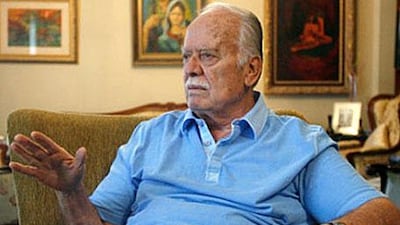The death of Shafiq al Hout, one of the founding members of the Palestinian Liberation Organization (PLO) and for many years its spokesman, will be regarded widely as the symbolic end of an era during which the tension between Palestinians and Israelis was articulated overwhelmingly by armed conflict rather than dialogue. Al Hout was never interested in compromise: he demanded nothing less than the full liberation of Palestine. In 1993, when Yasser Arafat accepted the terms of the Oslo Peace Accords that recognised the state of Israel, al Hout felt betrayed. Subsequently he left the PLO's executive committee, stating: "I have resigned from the job but not from the issue; the issue is not a job, it is the destiny of the Palestinians, and one cannot resign from it."
Born in Jaffa, one of six children, he spoke of an idyllic childhood spent playing football with cousins, swimming at the beach and cycling the city's streets. He dreamed of becoming a lawyer, imagining himself the dynamic defender of some troubled soul as he postured before his bedroom mirror. In April 1948, the dreams evaporated. Jewish irregulars seized Jaffa and al Hout's family joined the throngs fleeing the city. They came to rest in Beirut, where gradually the realisation dawned that there would be no return home in the near future.
In 1949, al Hout enrolled to study medicine at the American University of Beirut. Courted by myriad political groups keen to enrol adherents to their various ideologies, he joined the communists. He also befriended George Habash, the founder of the Popular Front for the Liberation of Palestine, becoming a loud advocate of armed Palestinian resistance. Though his extracurricular activities led to arrest and brief imprisonment, al Hout managed to avoid being banished from Lebanon and later even secured Lebanese citizenship.
In the 1950s, he taught in Kuwait where he met Arafat and others committed to the Palestinian cause. He wrote for, and later edited, the radical weekly magazine Al Hawadeth before giving up journalism for politics in 1962, when he helped found the Palestine Liberation Front, and later the PLO in 1964. Serving as the PLO's representative to Lebanon until it was expelled in 1982, al Hout remained in Beirut while Arafat and his followers went into exile.
Shafiq al Hout was born on January 13, 1932. He died on August 2. He is survived by his wife, Bayan, their son, Hader, and two daughters, Hanin and Syrine. * The National

